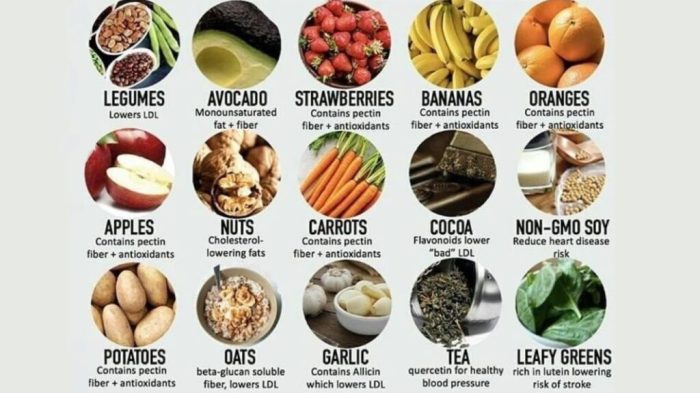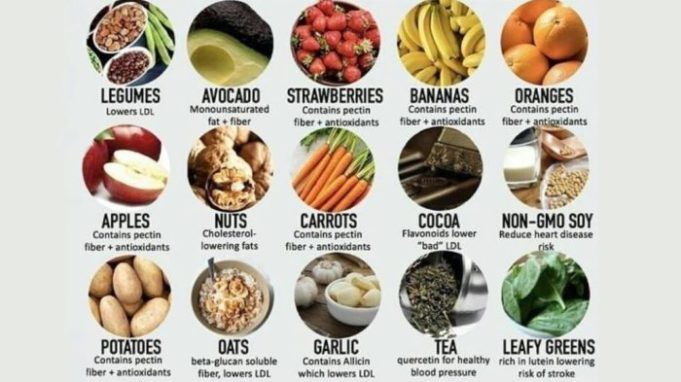How to lower triglycerides with diet is a question many people ask, especially those concerned about their heart health. Triglycerides are a type of fat found in your blood, and high levels can increase your risk for heart disease, stroke, and other health problems. The good news is that you can often lower your triglyceride levels through diet and lifestyle changes.
This article will explore the role of triglycerides in the body, the dietary factors that can contribute to high levels, and effective strategies for lowering them. We’ll delve into specific food choices, meal planning tips, and lifestyle modifications that can make a significant difference in managing your triglyceride levels.
Understanding Triglycerides

Triglycerides are a type of fat found in your blood. They are the most common type of fat in your body and are used as a source of energy. When you eat, your body breaks down the food you eat into its basic components, including triglycerides. These triglycerides are then stored in your fat cells for later use.
The Role of Triglycerides in the Body
Triglycerides play a crucial role in your body’s energy storage and utilization. They are the primary source of energy for your muscles and other tissues. When you need energy, your body breaks down triglycerides into fatty acids, which are then used as fuel.
Health Implications of High Triglyceride Levels
High triglyceride levels, also known as hypertriglyceridemia, can increase your risk of developing various health problems, including:
- Heart disease: High triglycerides can contribute to the buildup of plaque in your arteries, which can lead to heart attacks and strokes.
- Pancreatitis: High triglycerides can cause inflammation of the pancreas, a condition known as pancreatitis.
- Metabolic syndrome: This is a cluster of conditions that increase your risk of heart disease, stroke, and type 2 diabetes. High triglycerides are one of the components of metabolic syndrome.
Definition of Triglycerides
Triglycerides are composed of three fatty acid molecules attached to a glycerol molecule. They are formed when your body converts excess calories from food into stored energy. Triglycerides are stored in your fat cells and can be broken down into energy when needed.
Diet Strategies for Lowering Triglycerides
A balanced diet plays a crucial role in managing triglyceride levels. By making smart food choices, you can significantly reduce your risk of heart disease and other health problems associated with high triglycerides.
Lowering triglycerides through diet often involves reducing saturated and trans fats, which can be achieved through various approaches. There are many different types of diets to lose weight , each with its own emphasis on macronutrient intake and food choices.
For example, the Mediterranean diet, known for its abundance of fruits, vegetables, and healthy fats, can contribute to lower triglyceride levels. By making informed dietary choices, you can effectively manage your triglyceride levels and promote overall health.
Sample Meal Plan
Here’s a sample meal plan that prioritizes whole foods and limits processed options:
- Breakfast: Oatmeal with berries and nuts, or a whole-grain English muffin with avocado and egg whites.
- Lunch: Salad with grilled chicken or fish, or a lentil soup with whole-grain bread.
- Dinner: Salmon with roasted vegetables, or a vegetarian chili with brown rice.
- Snacks: Fruits, vegetables, yogurt, or a handful of almonds.
Weekly Grocery List
To help you stick to your healthy eating plan, here’s a weekly grocery list that emphasizes fruits, vegetables, lean proteins, and whole grains:
- Fruits: Apples, bananas, berries, oranges, grapes
- Vegetables: Broccoli, carrots, spinach, bell peppers, onions
- Lean Proteins: Chicken breast, fish, tofu, beans
- Whole Grains: Brown rice, quinoa, whole-wheat bread, oats
- Healthy Fats: Avocado, olive oil, nuts, seeds
Heart-Healthy Recipes
Here are a few delicious and heart-healthy recipes you can try:
- Grilled Salmon with Lemon and Herbs: Marinate salmon fillets in a mixture of lemon juice, olive oil, garlic, and herbs. Grill until cooked through. Serve with roasted vegetables.
- Lentil Soup: Sauté onions, carrots, and celery in olive oil. Add lentils, vegetable broth, and spices. Simmer until lentils are tender. Serve with whole-grain bread.
- Quinoa Salad with Roasted Vegetables: Roast vegetables like broccoli, carrots, and bell peppers. Toss with cooked quinoa, olive oil, lemon juice, and herbs.
Food Swaps
Making small food swaps can make a big difference in lowering your triglycerides.
Lowering triglycerides through diet often involves focusing on healthy fats and limiting processed foods. While exercise is crucial for overall health, you might wonder if is running the best way to lose weight to help with triglycerides. Ultimately, a balanced approach incorporating both diet and exercise is key to achieving healthy triglyceride levels.
- Instead of white bread, choose whole-grain bread.
- Instead of sugary drinks, drink water, unsweetened tea, or coffee.
- Instead of red meat, choose lean protein sources like chicken, fish, or beans.
- Instead of fried foods, choose baked, grilled, or roasted foods.
- Instead of butter, use olive oil or avocado oil.
Medical Considerations
It’s crucial to remember that everyone’s body is different, and what works for one person might not work for another. Therefore, it’s essential to consult with a healthcare professional for personalized advice on managing triglycerides. They can help you determine the best approach based on your individual health history, current medications, and other factors.
Medications for Lowering Triglycerides
While diet and lifestyle changes are often the first line of defense, some individuals may benefit from medication to lower their triglyceride levels. These medications work in various ways to reduce the production or increase the breakdown of triglycerides.
- Fibrates: These medications help regulate the production of triglycerides in the liver. Examples include gemfibrozil (Lopid) and fenofibrate (Tricor).
- Niacin (vitamin B3): This medication can reduce both triglyceride and cholesterol levels. However, it can cause flushing and other side effects.
- Statins: These medications are primarily used to lower cholesterol, but they can also have a beneficial effect on triglycerides.
- Omega-3 fatty acids: Fish oil supplements containing omega-3 fatty acids can lower triglyceride levels and improve heart health.
Interactions Between Diet and Medication, How to lower triglycerides with diet
It’s important to note that some medications used to lower triglycerides may interact with certain foods or dietary supplements. For instance, grapefruit juice can interfere with the metabolism of some medications, including statins. Always discuss your medication regimen with your healthcare provider and inform them of any dietary changes you’re making.
Concluding Remarks
By understanding the relationship between diet and triglycerides, you can empower yourself to make informed choices that support your overall health. Remember, consulting a healthcare professional is essential for personalized guidance, especially if you have existing medical conditions or are taking medications. Making positive changes to your diet and lifestyle can have a profound impact on your well-being, helping you achieve optimal heart health and a brighter future.
Quick FAQs: How To Lower Triglycerides With Diet
Can I lower my triglycerides with diet alone?
In many cases, yes! Dietary changes can significantly impact triglyceride levels. However, it’s crucial to consult a healthcare professional for personalized advice, especially if you have underlying health conditions.
What are some quick and easy food swaps to lower triglycerides?
Replace processed foods with whole grains, swap sugary drinks for water, and choose lean protein sources over fatty meats. Incorporating more fruits, vegetables, and nuts into your diet can also be beneficial.
How long does it take to see results from dietary changes?
Results can vary depending on individual factors, but you may notice a difference in your triglyceride levels within a few weeks to months of making consistent dietary changes.
Are there any specific foods that I should avoid to lower triglycerides?
Limit saturated and trans fats found in fried foods, processed meats, and baked goods. Also, be mindful of sugary drinks and refined carbohydrates, which can contribute to high triglyceride levels.
Lowering triglycerides through diet often involves focusing on healthy fats and limiting processed foods. For vegetarians, this can be particularly important as they may need to pay extra attention to getting enough essential nutrients like vitamin B12 and omega-3 fatty acids.
A helpful resource for understanding the Recommended Dietary Allowance for Vegetarians: A Guide Recommended Dietary Allowance for Vegetarians: A Guide can provide valuable insights into meeting these nutritional needs. By following a balanced vegetarian diet that prioritizes whole foods, vegetarians can effectively manage their triglyceride levels and maintain overall health.
























